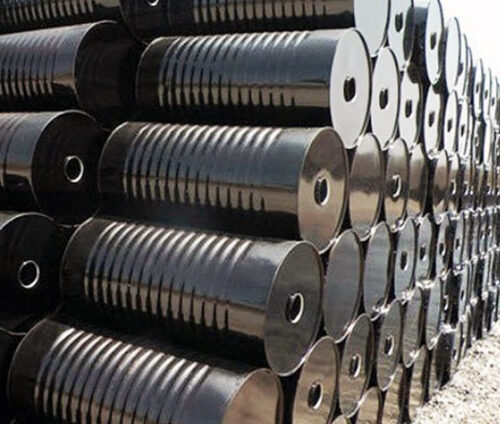
What Is the Viscosity Grade of Asphalt and Its Uses?
Asphalt viscosity grades refer to classifications based on the flow characteristics of bitumen at specified temperatures. Understanding these grades is essential in road construction, industrial waterproofing, and asphalt mix design, where temperature, traffic load, and durability are critical factors.
This article explains the meaning of asphalt viscosity grade, how it is measured, and its key applications across different industries.
What is Viscosity Grade Bitumen?
Viscosity grade (VG) asphalt is a refined bitumen whose classification depends on its viscosity value at specific temperatures—commonly measured at 60°C and 135°C. This system replaces the older penetration grading method and offers more accurate performance predictions under varied climatic conditions.
The grading includes:
-
VG-10
-
VG-20
-
VG-30
-
VG-40
Each number represents a viscosity range in centistokes (cSt) or poise, indicating how thick or fluid the asphalt is when heated.
Viscosity grade bitumen refers to bitumen that is classified based on its viscosity or resistance to flow at a specific temperature. The viscosity of bitumen is a crucial parameter as it determines how the material will behave during application and under varying temperature conditions. The higher the viscosity grade, the thicker and more viscous the bitumen will be.
Understanding Viscosity Grades
What is the viscosity grade of asphalt and its uses?
Viscosity grades are typically classified using two main systems:
Absolute Viscosity (AV):
This system categorizes bitumen based on its absolute viscosity in centipoises (cP) at a standard temperature of 60°C. For example, VG 10, VG 20, VG 30, VG 40, and VG 50 are some of the common viscosity grades based on absolute viscosity.
Kinematic Viscosity (KV):
In this system, bitumen is classified based on its kinematic viscosity in centistokes (cSt) at a standard temperature of 135°C. The commonly used grades include VG 10, VG 20, VG 30, VG 40, and VG 50.
⚙️ Viscosity Grade Asphalt Classification Table
| Viscosity Grade | Typical Application | Temperature Suitability | Traffic Suitability |
|---|---|---|---|
| VG-10 | Cold weather paving | Low temps | Light to moderate traffic |
| VG-20 | Mild climate roads | Moderate temps | Moderate traffic |
| VG-30 | High-performance mix | Warm to hot climates | Medium to heavy traffic |
| VG-40 | Industrial & highways | Very hot conditions | Heavy to extremely heavy |
Why is Viscosity Grade Bitumen Important?
Viscosity grade bitumen is crucial for ensuring the proper performance and longevity of asphalt in various applications. The viscosity grade of bitumen determines:
Workability:
Higher viscosity grades are generally thicker and more viscous, which can influence the workability of the asphalt during application.
Temperature Susceptibility:
The viscosity grade indicates how the bitumen will perform under different temperature conditions. For instance, bitumen with a higher viscosity grade will be more resistant to deformation at high temperatures and less susceptible to cracking at low temperatures.
Durability:
The right viscosity grade ensures that the asphalt will provide optimal durability and resistance to wear and tear, thereby extending the lifespan of the constructed surface.
📊 Benefits of Using Viscosity-Graded Asphalt
✅ Improved Mix Design Accuracy
VG bitumen allows engineers to select asphalt that suits climate and load conditions more precisely.
✅ Greater Temperature Stability
Unlike penetration grade, VG ensures reliable performance over a range of temperatures.
✅ Enhanced Load-Bearing Capacity
Heavier grades like VG-30 and VG-40 are ideal for highway and industrial load zones.
✅ Longer Pavement Life
When properly selected, VG asphalt increases road life and reduces maintenance cycles.
🏗️ Industrial Applications of Viscosity Grade Asphalt
What is the viscosity grade asphalt uses
🛣️ 1. Road Construction & Paving
Viscosity-graded asphalt is the backbone of modern highway design, offering climate-resilient and load-bearing properties. VG-10 and VG-20 are used in colder climates, while VG-30 and VG-40 are optimal for warmer zones.
🧱 2. Asphalt Concrete Production
VG asphalt plays a critical role in producing dense bituminous macadam (DBM) and bituminous concrete (BC) for high-performance roads and airport runways.
🏢 3. Roofing & Waterproofing
VG-40 is frequently used in roofing membranes, damp-proofing, and foundation insulation, thanks to its high softening point and viscosity stability.
🧪 4. Industrial Bituminous Compounds
VG grades serve as base materials for bitumen emulsions, sealants, crack fillers, and pipe coatings in the oil and gas sector.
Peak Universal Business: Your Top Quality VG Bitumen Supplier
Selecting a reliable and experienced supplier is crucial when it comes to sourcing viscosity grade bitumen of the highest quality. Peak Universal Business is a leading supplier of viscosity grade bitumen, offering a wide range of grades to meet the specific requirements of various construction projects.
With years of experience and expertise in the industry, Peak Universal Business is committed to delivering premium-quality viscosity grade bitumen that complies with international standards and specifications. Their products undergo rigorous quality control procedures to ensure consistency, reliability, and performance.
❓ FAQs About Viscosity Grade Asphalt
❓ What is the meaning of VG in bitumen?
“VG” stands for Viscosity Grade, which classifies bitumen based on its resistance to flow at standard temperatures, offering more consistent performance than penetration-grade bitumen.
❓ Which viscosity grade is best for highways?
VG-30 or VG-40 are ideal for high-traffic highways. They offer superior rutting resistance, thermal stability, and durability in heavy-duty applications.
❓ How is viscosity measured in asphalt?
Viscosity is measured using Brookfield or Saybolt viscometers at 60°C and 135°C, based on IS 73 or ASTM standards. The results determine the VG classification.
❓ Is VG asphalt better than penetration grade?
Yes. VG asphalt provides more reliable results, especially for climate-based performance. It’s also easier to handle and design with in laboratory conditions.
❓ Can VG asphalt be used for waterproofing?
Absolutely. VG-30 and VG-40 are commonly used in roofing, insulation, and other industrial waterproofing systems due to their heat and chemical resistance.
📣 Conclusion- What Is the Viscosity Grade of Asphalt
Viscosity grade asphalt offers a scientifically precise method for choosing the right bitumen for your climate, traffic load, and infrastructure needs. With options like VG-10 to VG-40, it ensures better performance, reduced rutting, and increased durability in roads, roofing, and industrial applications. By understanding and applying VG grades properly, engineers and contractors can significantly extend the life of asphalt structures while optimizing costs and safety.
With Peak Universal Business as your trusted supplier, you can rest assured knowing that you are receiving viscosity grade bitumen of the highest quality, tailored to meet the specific requirements of your project. Whether you are involved in road construction, waterproofing, or paving and surfacing, Peak Universal Business has got you covered with their extensive range of premium-quality viscosity grade bitumen.
So, the next time you need viscosity grade bitumen for your construction project, remember to choose Peak Universal Business for unparalleled quality, reliability, and performance.
📣Call to Peak Universal Business
🛠️ Need VG Bitumen for Your Next Project?
📦 Available in Drums, Bulk, and Meltable Bags
🌍 Exported Globally with ISO Certifications
🛠️ Ideal for Roads, Roofing, and Industrial Coatings
📞 Contact Us for Technical Datasheets & Pricing
👉 Get a Quote Now
🔹 Request a Quote | 🔹 Download TDS | 🔹 Talk to a Bitumen Specialist
📧 Email: [email protected]
📞 Phone: +971 4 878 2031
🌐 Visit: PUBLtd.
If You have any other Query or Question you want to ask, Please don’t hesitate to Contact Us.
- 0 comment





Leave a Reply